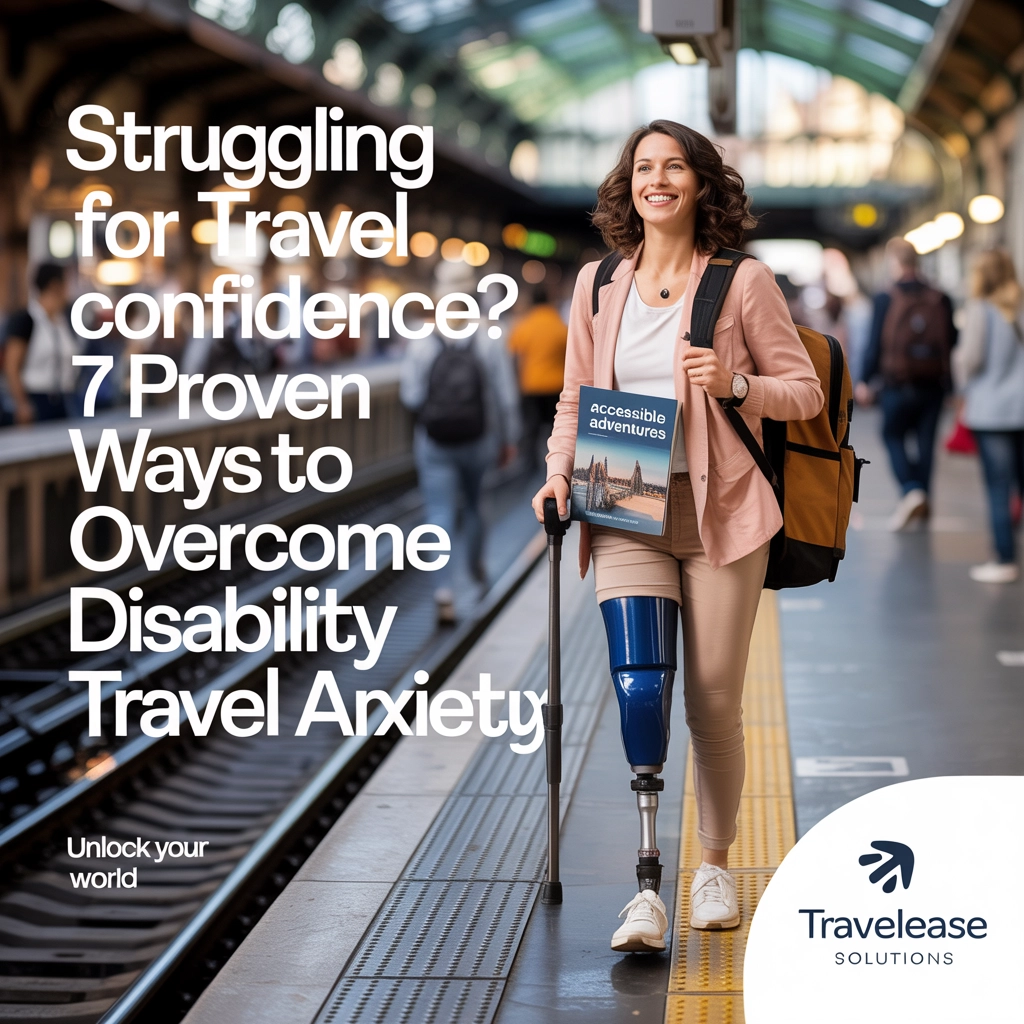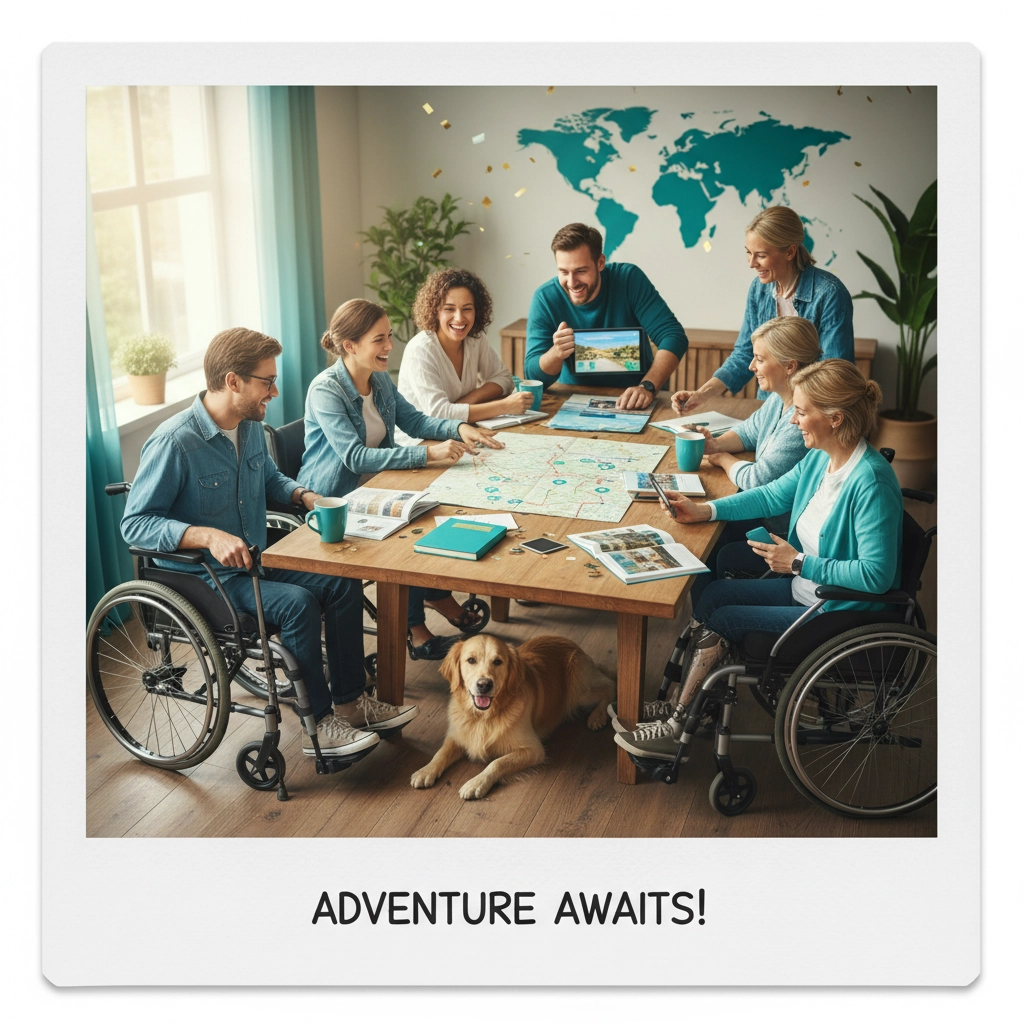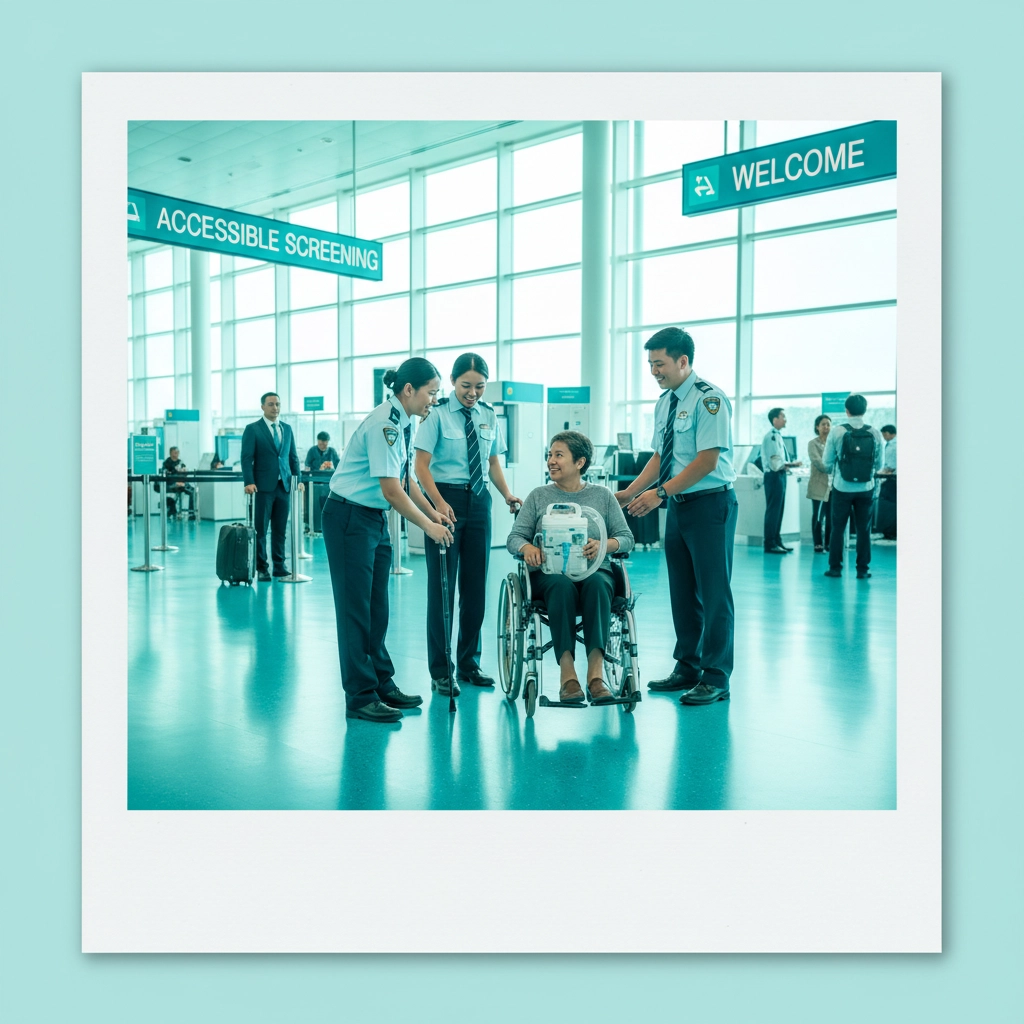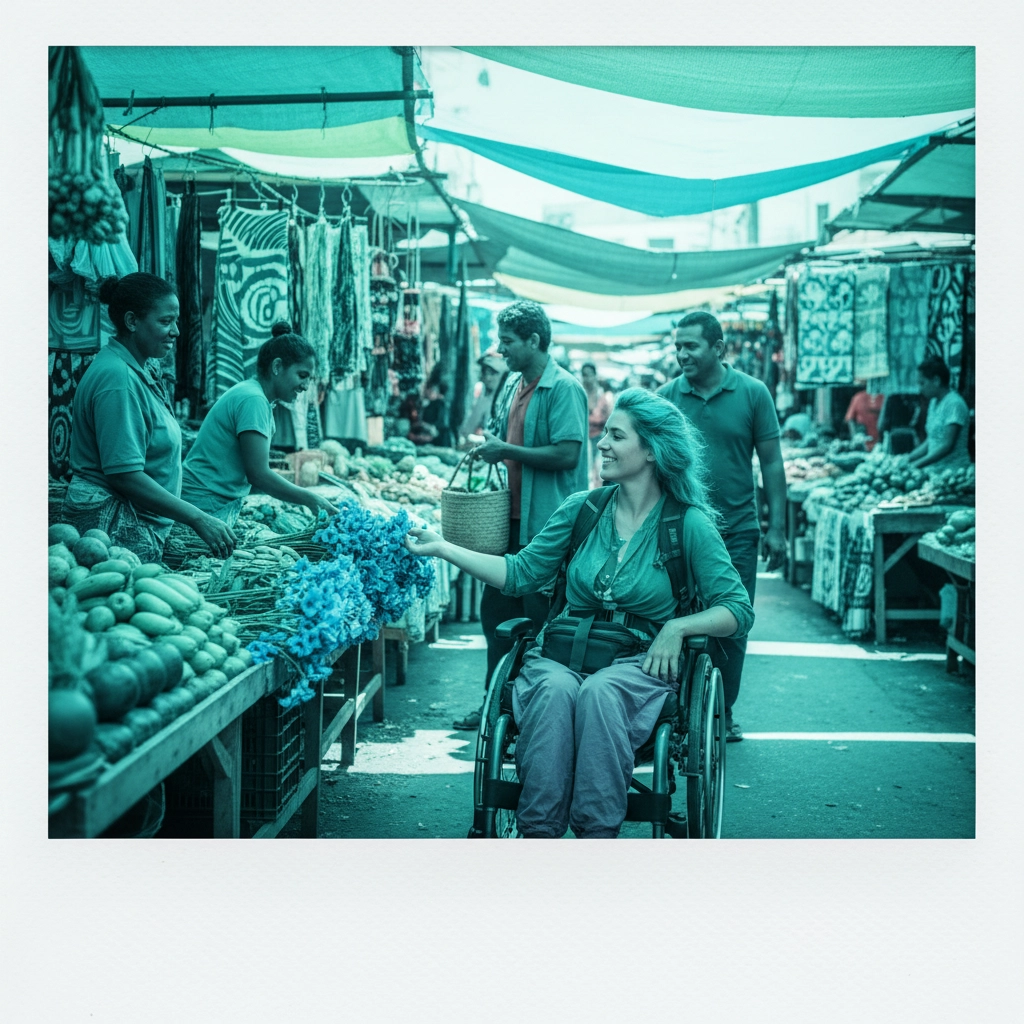Struggling For Travel Confidence? 7 Proven Ways to Overcome Disability Travel Anxiety

Travel anxiety is something many of us experience, but when you're managing the additional complexities that come with disability, those worried feelings can feel particularly overwhelming. The good news? You're absolutely not alone in feeling this way, and there are proven strategies that can help transform your travel experience from stressful to genuinely empowering.
Everyone deserves to explore the world and create wonderful memories, regardless of their individual needs or circumstances. With the right preparation and mindset, you can build genuine confidence and discover that travel can be one of life's most enriching experiences. Let's explore seven practical, proven ways to overcome disability travel anxiety and help you embrace your next adventure.
1. Master the Art of Advanced Planning (And Give Yourself Permission to Take Your Time)
Thorough preparation really is your strongest ally when it comes to managing travel anxiety. This isn't about being overly cautious – it's about setting yourself up for success and peace of mind.
Start planning your trip months or even weeks in advance if possible. This gives you plenty of time to research accessibility features at your destination, secure necessary accommodations, and gather any resources you might need. Everyone is different, so what works for one person might not work for another – and that's perfectly okay.
Create a comprehensive travel checklist that includes everything from mobility aids to medications, and don't forget those little comfort items that help you feel secure. Research your destinations thoroughly, including accessibility reviews from other travelers who understand your needs. Most of all, be patient with yourself during this process.

Why not take advantage of this planning time to request essential accommodations from airlines, train operators, or bus companies? Things like early boarding, mobility aid storage, or priority seating can make such a difference to your travel experience. The key is giving yourself enough time to arrange these without feeling rushed or stressed.
2. Build Your Confidence Through Gentle Exposure
If you've been staying close to home for a while, the thought of traveling can seem particularly daunting – and that's completely understandable. One wonderful way to build confidence is by gradually exposing yourself to new experiences before your big trip.
Try visiting new restaurants in your local area, exploring neighborhoods you haven't been to before, or attending social events that feel slightly outside your comfort zone. Think of these as your "travel appetizers" – they help you become more comfortable with unfamiliar situations without the pressure of being far from home.
You might visit museums you've never been to, try different types of cuisine, or even practice using public transport during quieter times of day. Each small adventure helps reduce that shock of being in completely new environments when you're actually traveling.
Being supportive to yourself during this process is key. Celebrate each small step you take – they all add up to building genuine travel confidence.
3. Create Your Personal Sensory Survival Kit
Transportation hubs and travel environments can feel overwhelming, especially if you're sensitive to noise, crowds, or unexpected changes. The good news is that with a bit of preparation, you can create your own portable comfort zone.
Consider putting together a sensory toolkit that might include noise-canceling headphones or good-quality earplugs, fidget toys or stress balls, sunglasses or a comfortable sleep mask, and some familiar snacks like chewing gum or sour sweets. If it helps you feel calmer, you might even pack a weighted lap blanket (just check TSA regulations first if you're flying).
Timing can make such a difference too. Try traveling during off-peak hours when possible – early mornings, late evenings, or mid-week journeys often mean smaller crowds and less stimulating environments. Many airports and train stations now offer sensory rooms or quiet spaces, so it's worth researching these ahead of time.
Remember, everyone has different sensory needs, so trust yourself to know what works best for you. There's no right or wrong way to manage your comfort during travel.
4. Build Your Support Network (You Don't Have to Go It Alone)
Traveling with trusted companions can significantly reduce anxiety, especially when you're navigating unfamiliar environments. Having comfortable travel buddies makes new experiences feel much less daunting – they can offer practical support and emotional reassurance when you need it most.
If you're planning to travel alone, that's wonderful too, but consider establishing some support networks beforehand. This might mean connecting with disability support services at your destination, or simply having a communication plan with trusted friends or family back home who can provide emotional support throughout your journey.
Don't hesitate to reach out to other travelers who share similar experiences. Online communities and forums can be invaluable sources of practical advice and encouragement. Sometimes just knowing that others have successfully navigated similar challenges can boost your confidence enormously.
5. Streamline Security and Transportation Processes
Security checkpoints and boarding procedures often trigger anxiety, particularly when mobility aids, medical devices, or guide dog equipment are involved. The uncertainty of what might happen can feel overwhelming, but there are ways to make these processes much smoother.
Request assistance from airlines or transportation companies at least two weeks before your departure date. Most are more than happy to help when they have advance notice. Consider programs like TSA PreCheck or Global Entry if you're traveling frequently – these can help you avoid long queues and reduce the likelihood of additional security screenings.
Some airports now offer practice runs or simulation experiences where you can familiarize yourself with the entire travel process from check-in to boarding. This can be incredibly helpful for reducing that uncertainty-related stress. If these aren't available at your local airport, you might ask if you can arrange a quiet tour during off-peak hours.
Remember, airport and airline staff are there to help you have a smooth journey. Don't hesitate to ask questions or request assistance – it's what they're there for.
6. Create Structure While Staying Flexible
If you thrive on routine and predictability, detailed itineraries can provide wonderful structure and reduce anxiety about the unknown. Use planning apps or simple lists to map out your days, but always build in buffer time for unexpected delays or changes.
Having a clear plan helps you feel prepared and in control, but try to maintain some flexibility for those lovely spontaneous moments that often make the best travel memories. Include alternative options in your planning so you feel ready for various scenarios – maybe an indoor activity if the weather doesn't cooperate, or a quieter restaurant option if your first choice is too busy.
It's perfectly okay to have a more structured travel style if that's what makes you feel comfortable and confident. Everyone experiences travel differently, and there's no need to apologize for planning in a way that works for you.
7. Develop Your Personal Calm-Down Toolkit
When anxiety does strike during travel (and it might occasionally, which is completely normal), having immediate coping strategies ready can make all the difference. This is about finding what works specifically for you and practicing these techniques before you travel.
Some people find deep breathing exercises incredibly helpful, while others prefer progressive muscle relaxation or mindfulness practices. You might find that focusing on positive aspects of your trip helps redirect anxious thoughts, or perhaps having a few comfort items packed in your carry-on provides that extra sense of security.

Grounding techniques can be particularly useful – these might involve naming five things you can see, four you can touch, three you can hear, two you can smell, and one you can taste. It's a simple way to reconnect with the present moment when anxiety starts to spiral.
Most importantly, give yourself permission to take breaks when you need them. Listen to your body and be kind to yourself if you're feeling uncomfortable or overwhelmed. This is all part of looking after yourself while traveling.
Moving Forward with Confidence
Experiencing travel anxiety doesn't mean you can't have wonderful adventures – it simply means you might need different strategies to feel comfortable and confident. Each successful travel experience, no matter how small, builds your confidence for future journeys.
Travel has this amazing ability to increase our sense of well-being, confidence, and connection to the wider world. With proper preparation and the right support, you can transform travel from something that feels daunting into genuinely empowering experiences that expand your horizons.
Remember, there's no timeline for building travel confidence, and everyone's journey looks different. Be patient with yourself, celebrate your successes, and don't hesitate to reach out for support when you need it.
If you're feeling inspired to start planning your next adventure, we'd love to help make it happen. Our team understands the unique considerations that come with accessible travel, and we're here to support you every step of the way. Get in touch with us today – we look forward to hearing from you soon and helping you create some wonderful travel memories.

